|
|
|
|
|
|
|
|
Today's Congressional Action:
The House is in session and expected to consider non-Arctic legislation. The Senate is expected to host a pro forma session.
|
Media
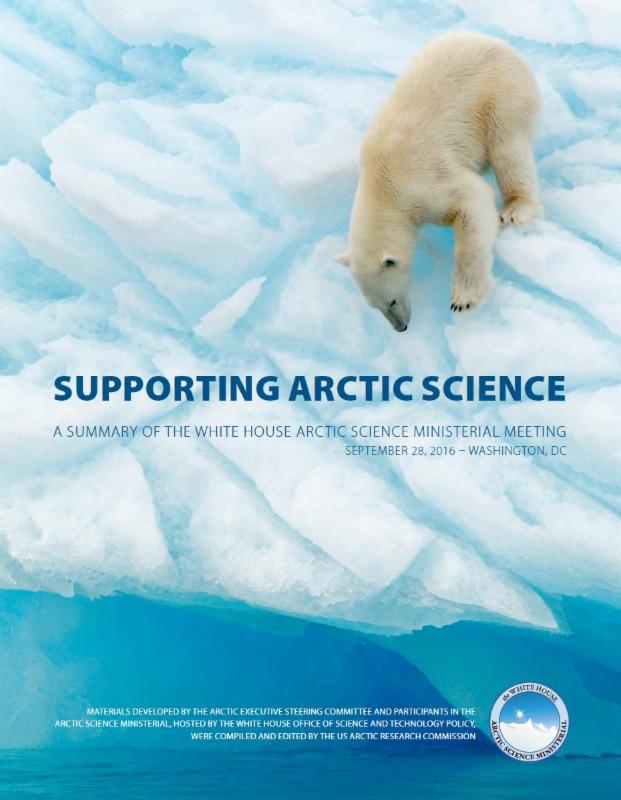 ** New Report Released ** Supporting Arctic Science: A Summary of the WhiteHouse Arctic Science Ministerial Meeting. This document summarizes the first-ever Arctic Science Ministerial that was held in Washington, DC, at the White House, on September 28, 2016, to advance international research efforts. It includes the meeting agenda, a list of participants, a White House "fact sheet" that describes the outcomes from the meeting, a Joint Statement of Ministers, and a list of media reports on the event. The document also includes a compilation of two-page descriptions of Arctic science support provided by the ministerial delegations (representing 24 nations and the European Union). These self-reported snapshots follow a standardized format that includes (1) points of contact, (2) Arctic research goals, (3) Arctic research policy, (4) major Arctic research initiatives, and (5) Arctic research infrastructure. ** New Report Released ** Supporting Arctic Science: A Summary of the WhiteHouse Arctic Science Ministerial Meeting. This document summarizes the first-ever Arctic Science Ministerial that was held in Washington, DC, at the White House, on September 28, 2016, to advance international research efforts. It includes the meeting agenda, a list of participants, a White House "fact sheet" that describes the outcomes from the meeting, a Joint Statement of Ministers, and a list of media reports on the event. The document also includes a compilation of two-page descriptions of Arctic science support provided by the ministerial delegations (representing 24 nations and the European Union). These self-reported snapshots follow a standardized format that includes (1) points of contact, (2) Arctic research goals, (3) Arctic research policy, (4) major Arctic research initiatives, and (5) Arctic research infrastructure.
Will Trump Reverse Protective Obama Policies in the Arctic? It's Unknown Now. President Barack Obama has pinned a chunk of his legacy to policies in the Arctic and circumpolar north. He made an historic trip to Alaska last year. Initiatives to address Arctic climate change and environmental concerns, rolled out while the United States chairs the eight-nation Arctic Council, have been high priorities for the outgoing president. Now President-elect Donald Trump, a climate-change skeptic, is ready and able to reverse all of Obama's Arctic policies. Alaska Dispatch News
 Narwhals 'See' With Sound Better Than Any Other Species: Study. Narwhals 'See' With Sound Better Than Any Other Species: Study. Scientists have long known that the narwhal navigates through its environment with sound, but a recent study shows just how well the Arctic whale does it. Research published Nov. 9 in the online scientific journal PLOS ONE argues that narwhals have the most directional sonar signal of any species, which helps the whales eke out a living in the often ice-packed waters of the Arctic. Nunatsiaq Online
 Nunavut Beefs up Immunization to Quell Whooping Cough Outbreak. Nunavut Beefs up Immunization to Quell Whooping Cough Outbreak. Health officials in Nunavut plan to immunize all secondary students between Grade 6 and Grade 9 against whooping cough by the end of 2016, to help prevent the spread of what officials say is the largest outbreak on record. Since March 2016, when the first cases of the respiratory infection were confirmed in Pond Inlet,whooping cough, or pertussis, has spread to communities throughout the Qikiqtani region and more recently to the Kivalliq region. Nunatsiaq Online
EU Horizon 2020 Project Studying Arctic's Connections to Weather and Climate in Europe, Asia and North America Kicks Off. An EU-financed project investigating ways to improve weather and climate prediction in the face of a rapidly changing Arctic officially started this month. Known as APPLICATE (Advanced Prediction in Polar regions and beyond: modeling, observing system design and Linkages associated with a Changing Arctic climate), the €8 million project, financed by the EU HORIZON 2020 Research and Innovation program, involves 16 partners from nine countries (Belgium, France, Germany, Iceland, Norway, Russia, Spain, Sweden and the United Kingdom) and will be carried out over a period of four years. The multinational and multidisciplinary consortium will work to enhance weather and climate prediction capabilities not only in the Arctic, but also in Europe, Asia, and North America. The Arctic Journal
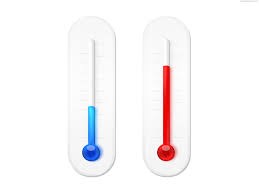 2016 'Very Likely' to be the Hottest Year on Record, UN Agency Declares. 2016 'Very Likely' to be the Hottest Year on Record, UN Agency Declares. Timed for the ongoing international climate meetings in Marrakech, Morocco, the United Nations' World Meteorological Organization (WMO) has affirmed what many scientists had already considered inevitable - 2016, the agency said, will "very likely" be the hottest year on record. That would mean that the last three years - 2014, 2015, and 2016 - have set ever more impressive temperature records in quick succession. The agency was able to say as much, despite the year not even being over yet, due to the jaw-dropping heat seen throughout much of the year. Multiple months in 2016 set new monthly temperature records, buoyed by a very strong El Nino event. The Washington Post
Increased Arctic Shipping, Access to Resources Underscores 'Relevance' of Military Readiness. The soldier operating a tracked vehicle that was transporting reporters up a steep ski slope at the Army's Black Rapids Training Site didn't have to worry about losing traction - because there was hardly any snow on the ground at the facility, part of the Army's Northern Warfare Training Center that prepares soldiers to operate in what is usually a cold and snowy area. KUAC
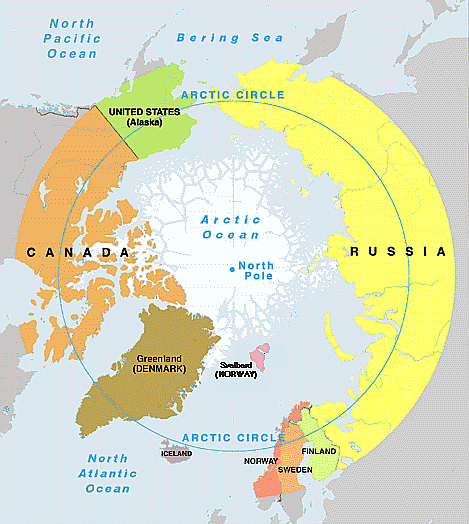 Will Trump Reverse Protective Obama Policies in the Arctic? Will Trump Reverse Protective Obama Policies in the Arctic? It's Unknown Now. President Barack Obama has pinned a chunk of his legacy to policies in the Arctic and circumpolar north. He made an historic trip to Alaska last year. Initiatives to address Arctic climate change and environmental concerns, rolled out while the United States chairs the eight-nation Arctic Council, have been high priorities for the outgoing president. Now President-elect Donald Trump, a climate-change skeptic, is ready and able to reverse all of Obama's Arctic policies. Alaska Dispatch News
|
Legislative Action.gif)
No Arctic legislation was formally considered Thursday.
|
|
Future Events
 ArcticNet annual Scientific Meeting 2016, December 5-9, 2016 (Winnipeg, MP Canada). ArcticNet will host its 12th Annual Scientific Meeting. The ASM2016 will welcome researchers, students, Inuit, Northerners, policy makers and stakeholders to address the numerous environmental, social, economical and political challenges and opportunities that are emerging from climate change and modernization in the Arctic. As the largest annual Arctic research gathering held in Canada, ArcticNet's ASM is the ideal venue to showcase results from all fields of Arctic research, stimulate discussion and foster collaborations among those with a vested interest in the Arctic and its peoples. ArcticNet annual Scientific Meeting 2016, December 5-9, 2016 (Winnipeg, MP Canada). ArcticNet will host its 12th Annual Scientific Meeting. The ASM2016 will welcome researchers, students, Inuit, Northerners, policy makers and stakeholders to address the numerous environmental, social, economical and political challenges and opportunities that are emerging from climate change and modernization in the Arctic. As the largest annual Arctic research gathering held in Canada, ArcticNet's ASM is the ideal venue to showcase results from all fields of Arctic research, stimulate discussion and foster collaborations among those with a vested interest in the Arctic and its peoples.
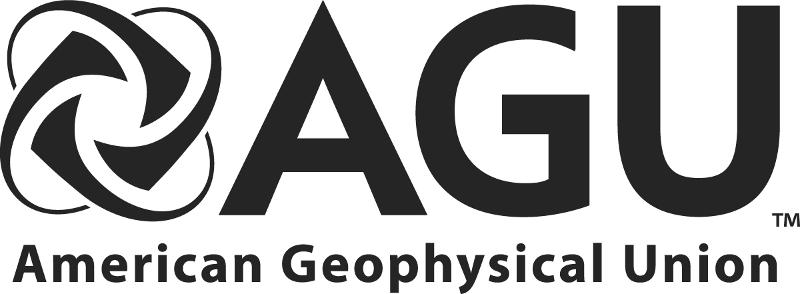 American Geophysical Union Fall Meeting, December 12-16, 2016 (San Francisco, CA USA). American Geophysical Union Fall Meeting, December 12-16, 2016 (San Francisco, CA USA). Anticipating about 25,000 attendees, AGU's Fall Meeting will again be the largest Earth and space science meeting in the world. 2016 marks the meeting's 49th year and there will be approximately 20,000 oral and poster presentations in over 1,700 sessions, many of which will focus specifically on Arctic science. Among the highlights, the "2016 Arctic Report" will again be released, IARPC will hold a "Town Hall Meeting" on Thursday, Dec. 15th, from 12:30 to 1:30 pm in Moscone West Room 2003, and NASA will have a Town Hall on Operation IceBridge on Dec. 14th, in Moscone Room 202 from 12:30 to 1:30 pm.
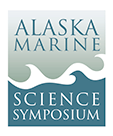 Alaska Marine Science Symposium, January 23-27, 2017 (Anchorage, AK USA). Alaska Marine Science Symposium, January 23-27, 2017 (Anchorage, AK USA). The annual Alaska Marine Science Symposium (AMSS) is Alaska's premier marine research conference. It brings together roughly 800 scientists, educators, resource managers, students, and interested public to discuss marine research being conducted in Alaskan waters. Research will be presented by geographic theme, including the Gulf of Alaska, Bering Sea & Aleutian Islands, and the Arctic. Topic areas will include ocean physics, fishes and invertebrates, seabirds, marine mammals, local traditional knowledge and more. Keynote presentations will be held Monday, January 23rd; Gulf of Alaska presentations will be on Tuesday, Bering Sea/Aleutian Islands on Wednesday, followed by the Arctic on Thursday.
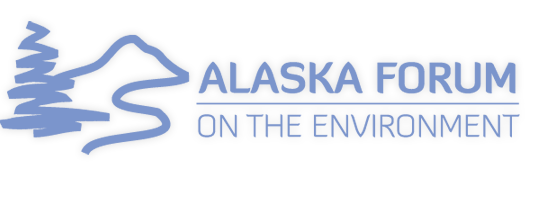 Alaska Forum on the Environment, February 6-10, 2017 (Anchorage, AK USA). Alaska Forum on the Environment, February 6-10, 2017 (Anchorage, AK USA). This statewide gathering of environmental professionals, community leaders, Alaskan youth, conservationists, biologists and community elders will be holding its 19th meeting to continue providing a strong educational foundation for all Alaskans and a unique opportunity to interact with others on environmental issues and challenges. As many as 1,800 people are expected to attend AFE this years meeting.
6th Annual Fletcher Arctic Conference, February 17-18, 2017 (Medford, MA USA). Fletcher Arctic VI, a TEDx-style event, will showcase the ideas, stories, and initiatives of people who live and work in the Arctic. The conference will bring together inspiring leaders, innovative business people, expert scientists, and artists from the pan-Arctic region. Building on The Fletcher School's interdisciplinary approach, Fletcher Arctic VI will be a forum to engage in conversation and spark open and constructive debate between speakers and participants, providing deep insights into this unique and rapidly changing region.
IV International Forum, March 2017 (Arkhangelsk, Russian Federation) Arkhangelsk will host the Forum. The Forum will be titled Human in the Arctic and will be aimed at putting together joint efforts of the international community to promote effective development of the Arctic region as a territory for comfort life, work and leisure. The Forum will be attended by government officials, representatives of international organizations and prominent business communities, centers for political studies, Polar researchers and members of the international Arctic expeditions, foreign political scientists and economists, Russian and foreign journalists from leading international media organizations. The Forum will be attended by the President of the Russian Federation, Mr. Vladimir Putin. Additional information will be announced here.
- The Arctic Cryosphere
- Pollution in the Arctic
- Human Health Aspects of Pollution and Climate Change
- Global and Arctic Systems Feedback Mechanisms
- Resilience within Arctic Ecosystems
- Science and Plicy Making
- Socio-Economic Drivers and Impacts of Arctic Change
Organizers announce a call for abstracts which are due by December 2, 2016. The event is organized by the Arctic Monitoring and Assessment Program (AMAP).
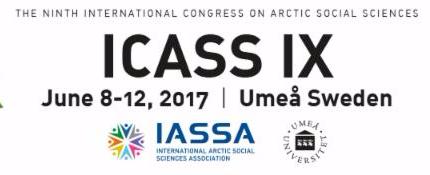 Ninth International Congress of Arctic Social Sciences: People and Places (ICASS IX), June 8-12, 2017 (Umeå, Sweden).ICASS IX's theme is People & Place. Research on social sciences and humanities have a great responsibility to address the challenges for sustainable development in the Arctic, with a specific focus on the many different parts of the Arctic and the people that live there. The multiple Arctics have lately been addressed by many policy makers and researchers. The purpose is often to counteract the stereotypic understanding of the Arctic too often represented by icebergs and polar bears. A focus on people and place highlights the many variances across the region in terms of climate, political systems, demography, infrastructure, history, languages, legal systems, land and water resources etc. Ninth International Congress of Arctic Social Sciences: People and Places (ICASS IX), June 8-12, 2017 (Umeå, Sweden).ICASS IX's theme is People & Place. Research on social sciences and humanities have a great responsibility to address the challenges for sustainable development in the Arctic, with a specific focus on the many different parts of the Arctic and the people that live there. The multiple Arctics have lately been addressed by many policy makers and researchers. The purpose is often to counteract the stereotypic understanding of the Arctic too often represented by icebergs and polar bears. A focus on people and place highlights the many variances across the region in terms of climate, political systems, demography, infrastructure, history, languages, legal systems, land and water resources etc.
 POLAR 2018, June 15-27, 2018 (Davos, Switzerland). POLAR2018 is a joint event from the Scientific Committee on Antarctic Research (SCAR) and the International Arctic Science Committee (IASC). The SCAR meetings, the ASSW and the Open Science Conference will be hosted by the Swiss Federal Institute for Forest, Snow and Landscape Research WSL under the patronage of the Swiss Committee on Polar and High Altitude Research. The WSL Institute for Snow and Avalanche Research SLF is organizing POLAR2018. POLAR 2018, June 15-27, 2018 (Davos, Switzerland). POLAR2018 is a joint event from the Scientific Committee on Antarctic Research (SCAR) and the International Arctic Science Committee (IASC). The SCAR meetings, the ASSW and the Open Science Conference will be hosted by the Swiss Federal Institute for Forest, Snow and Landscape Research WSL under the patronage of the Swiss Committee on Polar and High Altitude Research. The WSL Institute for Snow and Avalanche Research SLF is organizing POLAR2018.
|
|

  
4350 N. Fairfax Drive, Suite 510
Arlington, VA 22203, USA
External links in this publication, and on the USARC's World Wide Web site ( www.arctic.gov) do not constitute endorsement by the US Arctic Research Commission of external Web sites or the information, products or services contained therein. For other than authorized activities, the USARC does not exercise any editorial control over the information you may find at these locations. These links are provided consistent with the stated purpose of this newsletter and the USARC Web site.
|
|
|
|
|
|
|
|
|